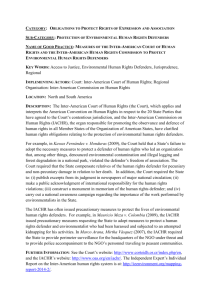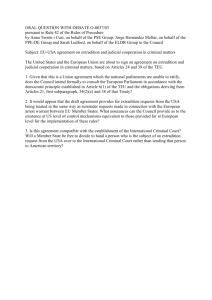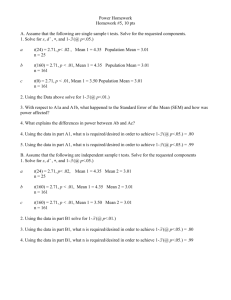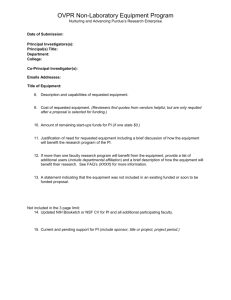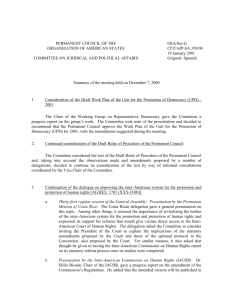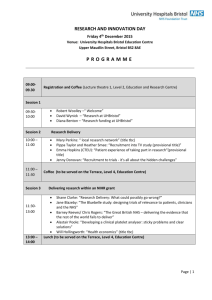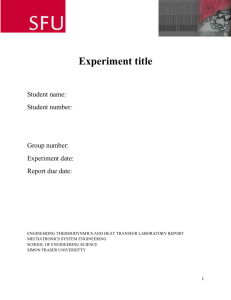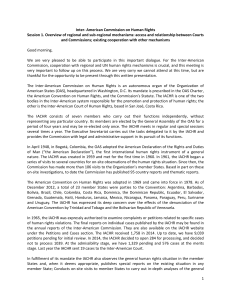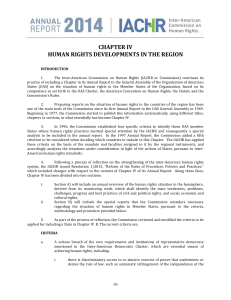1 CONCURRING OPINION OF JUDGE EDUARDO VIO GROSSI. I
advertisement
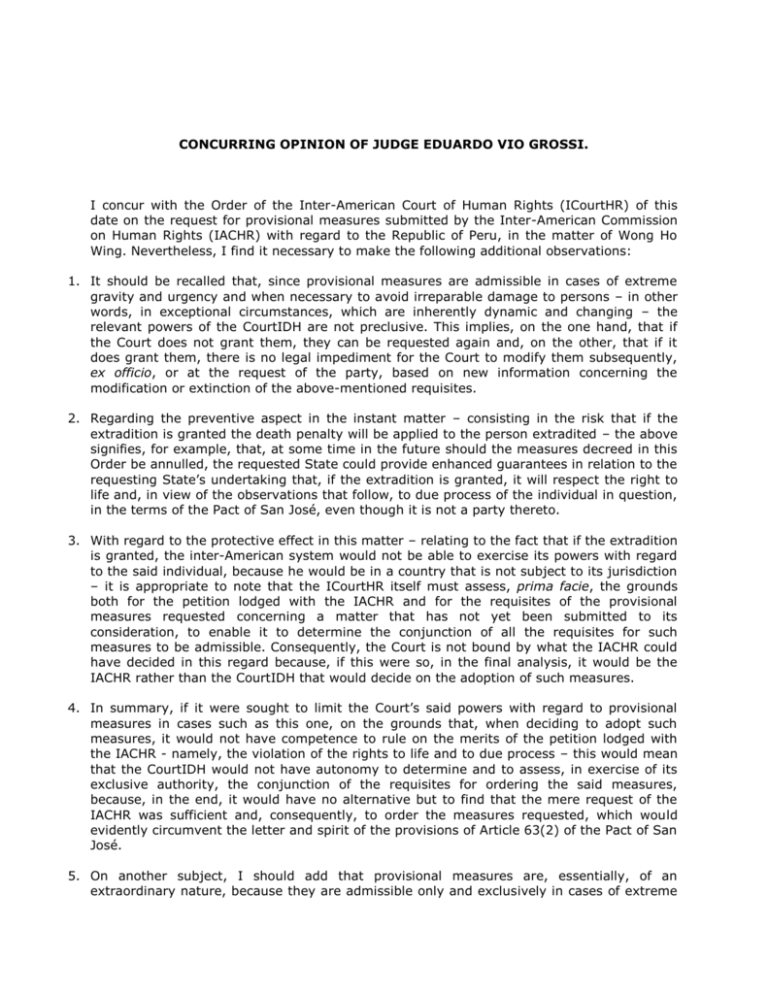
CONCURRING OPINION OF JUDGE EDUARDO VIO GROSSI. I concur with the Order of the Inter-American Court of Human Rights (ICourtHR) of this date on the request for provisional measures submitted by the Inter-American Commission on Human Rights (IACHR) with regard to the Republic of Peru, in the matter of Wong Ho Wing. Nevertheless, I find it necessary to make the following additional observations: 1. It should be recalled that, since provisional measures are admissible in cases of extreme gravity and urgency and when necessary to avoid irreparable damage to persons – in other words, in exceptional circumstances, which are inherently dynamic and changing – the relevant powers of the CourtIDH are not preclusive. This implies, on the one hand, that if the Court does not grant them, they can be requested again and, on the other, that if it does grant them, there is no legal impediment for the Court to modify them subsequently, ex officio, or at the request of the party, based on new information concerning the modification or extinction of the above-mentioned requisites. 2. Regarding the preventive aspect in the instant matter – consisting in the risk that if the extradition is granted the death penalty will be applied to the person extradited – the above signifies, for example, that, at some time in the future should the measures decreed in this Order be annulled, the requested State could provide enhanced guarantees in relation to the requesting State’s undertaking that, if the extradition is granted, it will respect the right to life and, in view of the observations that follow, to due process of the individual in question, in the terms of the Pact of San José, even though it is not a party thereto. 3. With regard to the protective effect in this matter – relating to the fact that if the extradition is granted, the inter-American system would not be able to exercise its powers with regard to the said individual, because he would be in a country that is not subject to its jurisdiction – it is appropriate to note that the ICourtHR itself must assess, prima facie, the grounds both for the petition lodged with the IACHR and for the requisites of the provisional measures requested concerning a matter that has not yet been submitted to its consideration, to enable it to determine the conjunction of all the requisites for such measures to be admissible. Consequently, the Court is not bound by what the IACHR could have decided in this regard because, if this were so, in the final analysis, it would be the IACHR rather than the CourtIDH that would decide on the adoption of such measures. 4. In summary, if it were sought to limit the Court’s said powers with regard to provisional measures in cases such as this one, on the grounds that, when deciding to adopt such measures, it would not have competence to rule on the merits of the petition lodged with the IACHR - namely, the violation of the rights to life and to due process – this would mean that the CourtIDH would not have autonomy to determine and to assess, in exercise of its exclusive authority, the conjunction of the requisites for ordering the said measures, because, in the end, it would have no alternative but to find that the mere request of the IACHR was sufficient and, consequently, to order the measures requested, which would evidently circumvent the letter and spirit of the provisions of Article 63(2) of the Pact of San José. 5. On another subject, I should add that provisional measures are, essentially, of an extraordinary nature, because they are admissible only and exclusively in cases of extreme 2 gravity and urgency and when necessary to avoid irreparable damage to persons. This implies, among other matters, that they should not be intended to replace the normal procedure for processing the individual petitions they refer to before the IACHR, or to remedy or compensate their defects or those that occur during the procedure; also that, should such measures be granted, it is important that they be granted on a temporary basis and, for the same reason, that the final decision on the petitions should, similarly, be urgent. 6. Moreover, it is relevant to indicate that provisional measures also have a restricted nature, in particular, as regards their effects. In other words, to the extent possible, it should be ensured that they do not entail consequences that are unwanted and additional to the said preventive and protective nature, such as those that could occur in this case if the measures were used to facilitate actions or measures in the requested State designed to delay or even evade the action of the courts with regard to offenses unrelated to human rights, such as, in the case of the said requested extradition, the offenses of customs tax evasion and fraud, because if this happened, the inter-American system for the protection of human rights could be used or perceived as a mechanism to encourage, to obtain or to ensure impunity, an objective that is entirely alien to the system and which would discredit it; a risk that it is necessary, consequently, to try and avoid, notwithstanding the specific need to ensure also that the extradition is not used to avoid compliance with human rights obligations. 7. In short, it is admissible to interpret and apply provisional measures as part of the proceedings conducted before the CourtIDH and, in general, of the international legal system. This means that their objectives of prevention and protection with regard to human rights must be pursued while, at the same time, endeavoring to safeguard other juridical rights protected by international law such as, in this case, in keeping with the above and as an example, the right of both the petitioner or beneficiary and the requested State, within the proceedings in which such measures are ordered, to justice being dispensed in a timely manner and the said extradition process not being delayed unduly. 8. Consequently, the obligation to protect the right to life of the person whose extradition has been requested, and the obligation to prevent the impunity from which this person could benefit if he were not extradited should not be considered mutually exclusive in this case. In other words, it should not be considered that, by ordering provisional measures, a choice has been made between the application of the Pact of San José or the application of the extradition treaty between Peru and the People’s Republic of China; but rather, that they have been ordered interpreting the two treaties congruently. 9. In conclusion, the undersigned recognizes that the above observations with regard to provisional measures are specifically reflected in the time limit established for the duration of the provisional measures ordered. Eduardo Vio Grossi Judge Pablo Saavedra Alessandri Secretary

